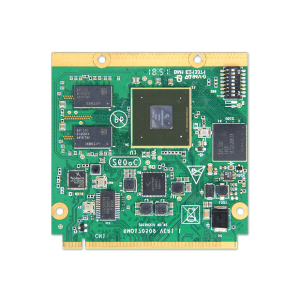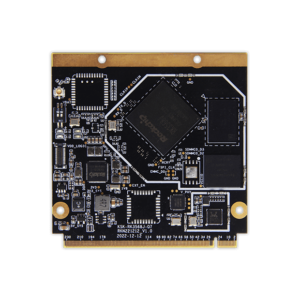Qseven Modules
What is a Q7 module?
Qseven (Q7) is a computer module standard designed specifically for mobile and ultra-portable applications, meeting the stringent requirements for low power consumption and high performance. The Qseven standard features:
-
Size and Pins: Qseven modules adhere to a standard size of 70mm x 70mm or 40mm x 70mm, utilizing a 230-pin MXM edge connector design.
-
Interfaces: Qseven defines a rich set of interfaces, including PCI Express lanes, SATA, USB 2.0, Ethernet, LVDS, SDVO/HDMI/DisplayPort (shared), High Definition Audio (HDA), Low Pin Count bus (LPC), fan control, and battery management.
-
Power Consumption: Designed with a focus on low power consumption, Qseven modules typically have a maximum Thermal Design Power (TDP) of 12 watts, suitable for battery-powered mobile and IoT applications.
-
Applications: Qseven is suitable for high-speed I/O connections in handheld devices, Human Machine Interface (HMI), signage applications, and IoT projects.
-
Support and Adoption: The Qseven standard is supported by various companies and has been widely adopted globally. Designing with Qseven standard can reduce development time and costs while maintaining interchangeability with modules from different vendors.
-
Software Interfaces: To avoid software modifications when swapping modules, the Qseven specification provides consistent software Application Programming Interfaces (APIs), enabling easy interchangeability of Qseven modules from different manufacturers without the need for hardware or software modifications.
-
Processor Support: Qseven supports both x86 and Arm processor architectures, making it suitable for a wider range of application scenarios.
Qseven standard has become a popular choice in embedded system design due to its compact size, low power consumption, and rich interface options, particularly in applications with strict space and energy requirements.

